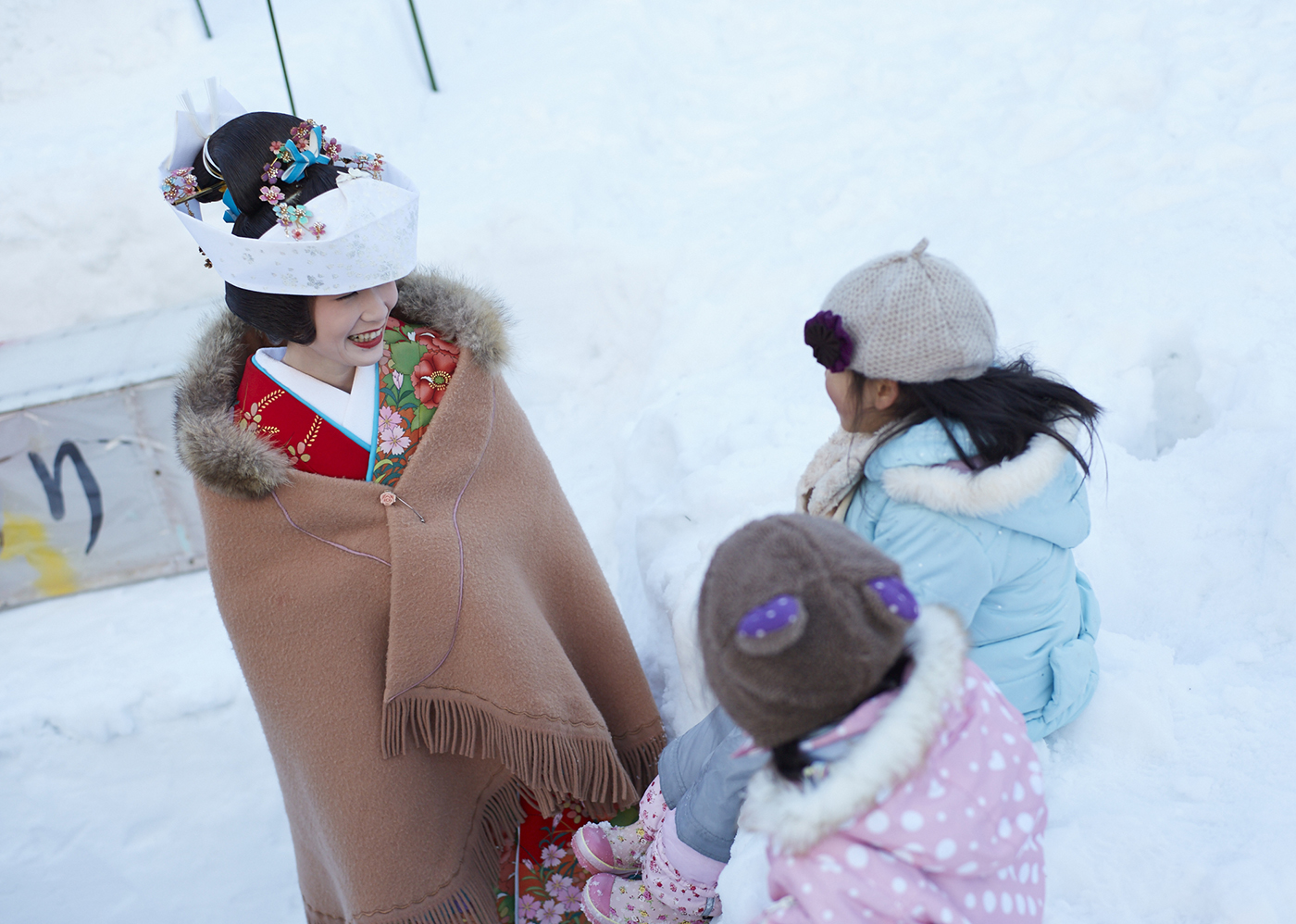
Learning about Akita LoreHanayome Dochu (Bridal Procession)
One of the key factors behind the origin of Hanayome Dochu is the snow. Next, we’re going to talk about the relationship that people who live here have with the snow.
LecturerYukitopia Nanamagari
Action CommitteeMr. Hirosuke Sugawara
Contents
- 1. Hanayome Dochu
- 2. “If it snows, so much the better”
- 3. Living with the Snow
- 4. Looking to the future
Written by Fumiko YABUKI
Editor; former designer. Born and raised in Akita, she is a hardocore Akita native! She is Deputy Chief Editor for the free magazine “non-biri”.
Photographs by Yoma FUNABASHI
3. Living with the Snow
- SUGAWARA
- Hanayome Dochu is held in January. This is what we focus on during the toughest part of winter. We work hard and prepare for this day, then once it’s over we get the feeling that spring is on the way.
- YABUKI
- I see!
- SUGAWARA
- When February comes, it has a different feel to it. You feel like you’re past the worst.
- YABUKI
- Yeah, that makes sense.
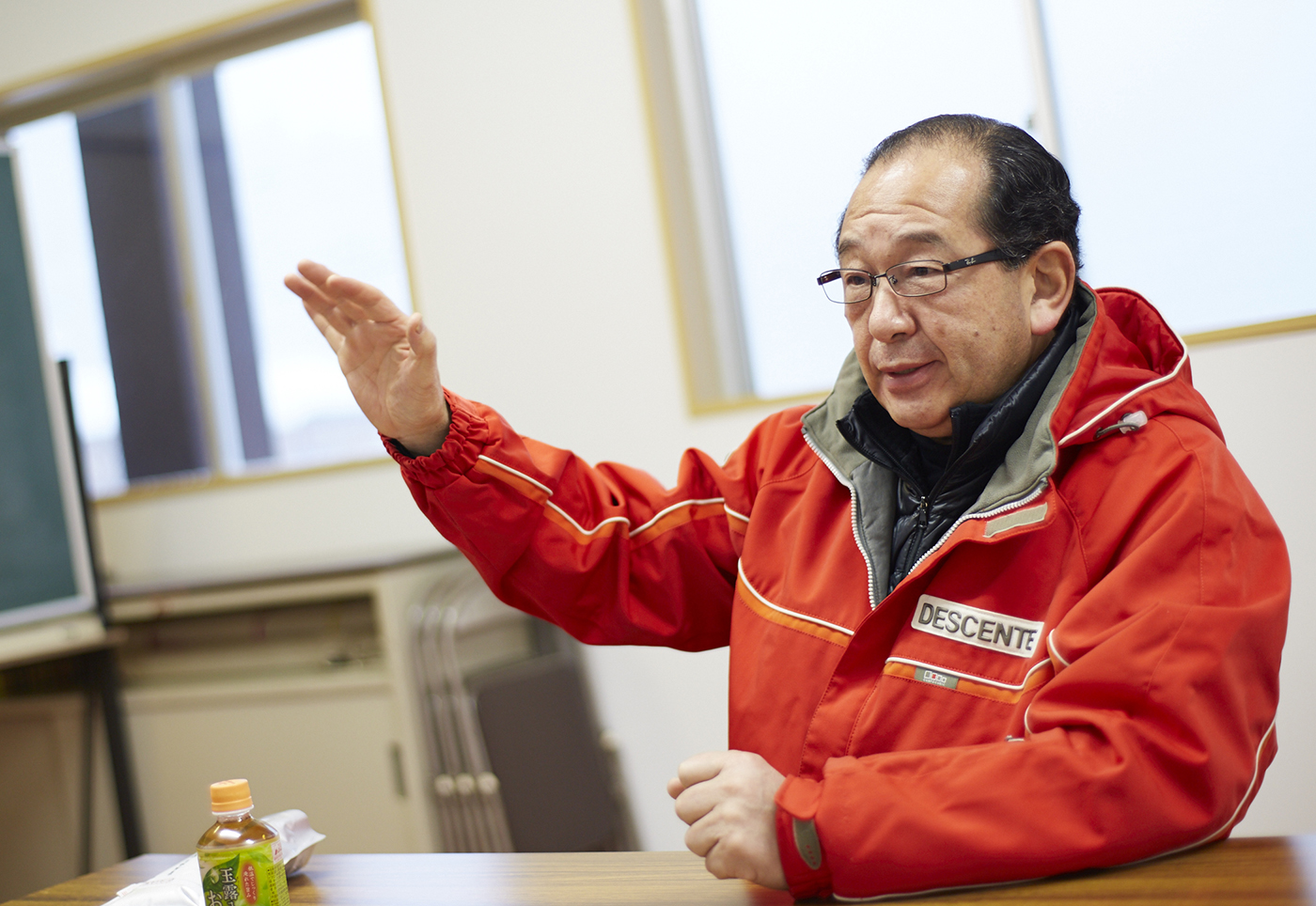
- SUGAWARA
- Once Hanayome Dochu is over, there’s plenty of time to enjoy the other events in Akita, such as Yuzawa’s Inukko Dog Festival ot the Kamakura Snow Festival (“Igloo Festival”) in Yokote.
- YABUKI
- Right!
- SUGAWARA
- By the time it gets to February, the snow is starting to soften. So up until early March, I go skiing at Mt. Zao or Lake Tazawa with friends from the ski club. The heavy snowfalls are over by then, and the snow is firm and good for skiing on. If you have runny nose, you have to be smart if you’re skiing in a snowstorm (Laughs).
- YABUKI
- Ha! Ha!
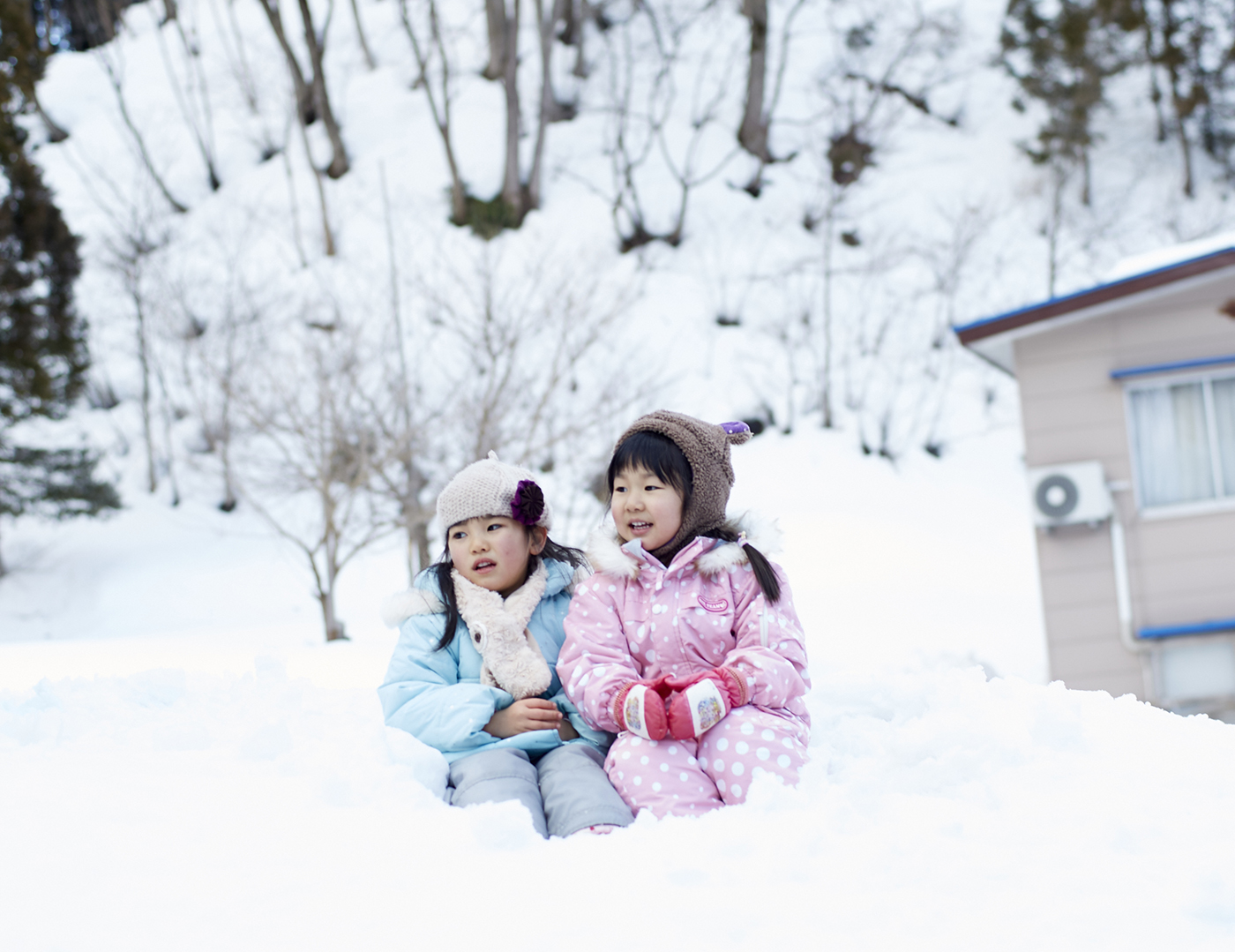
- SUGAWARA
- Doing the Hanayome Dochu event in January when the weather is at its coldest makes the winter feel a bit shorter.
- YABUKI
- I know what you mean. Before you did this I guess you just had to go through the winter with nothing to look forward to.
- SUGAWARA
- That’s it. The way we spend the month now is completely different to what it was like before we started doing this event 32 years ago.
- YABUKI
- Preparing for an event keeps you occupied but it also helps you interact more with others, doesn’t it?
- SUGAWARA
- Yes. It really fires you up. Everyone feels they have something to work towards.
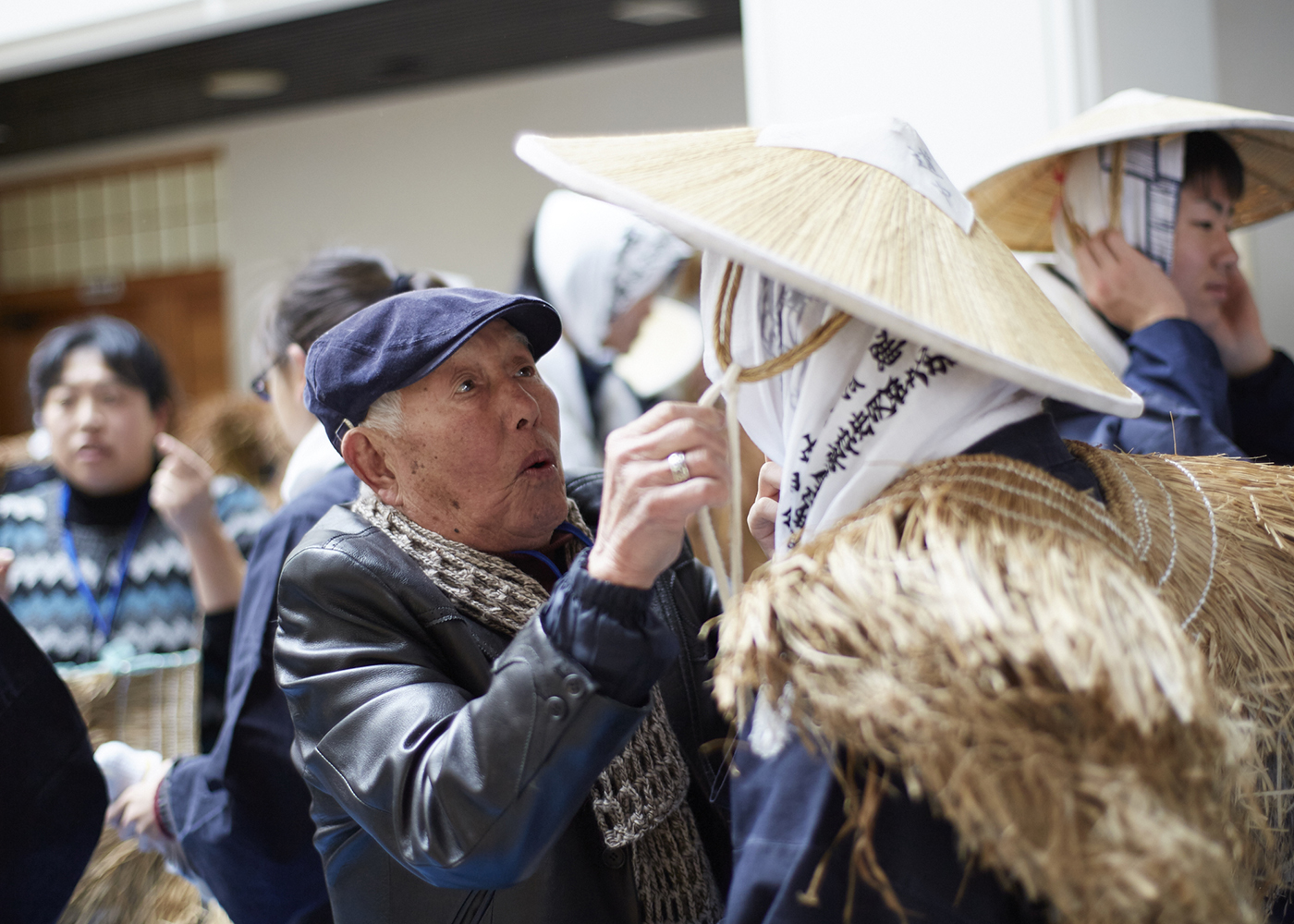
- YABUKI
- Wow! I think there’s a lot we can learn from an event like this!
- SUGAWARA
- Really? How do you mean? I don’t really notice it myself. It’s just something I take for granted. I’ve done the same thing every day for years.
- YABUKI
- Sure.
- SUGAWARA
- It took me 10 years to get this event started. I’m not sure whether that was coincidence or just the way it was meant to be.
- YABUKI
- I see what you mean.
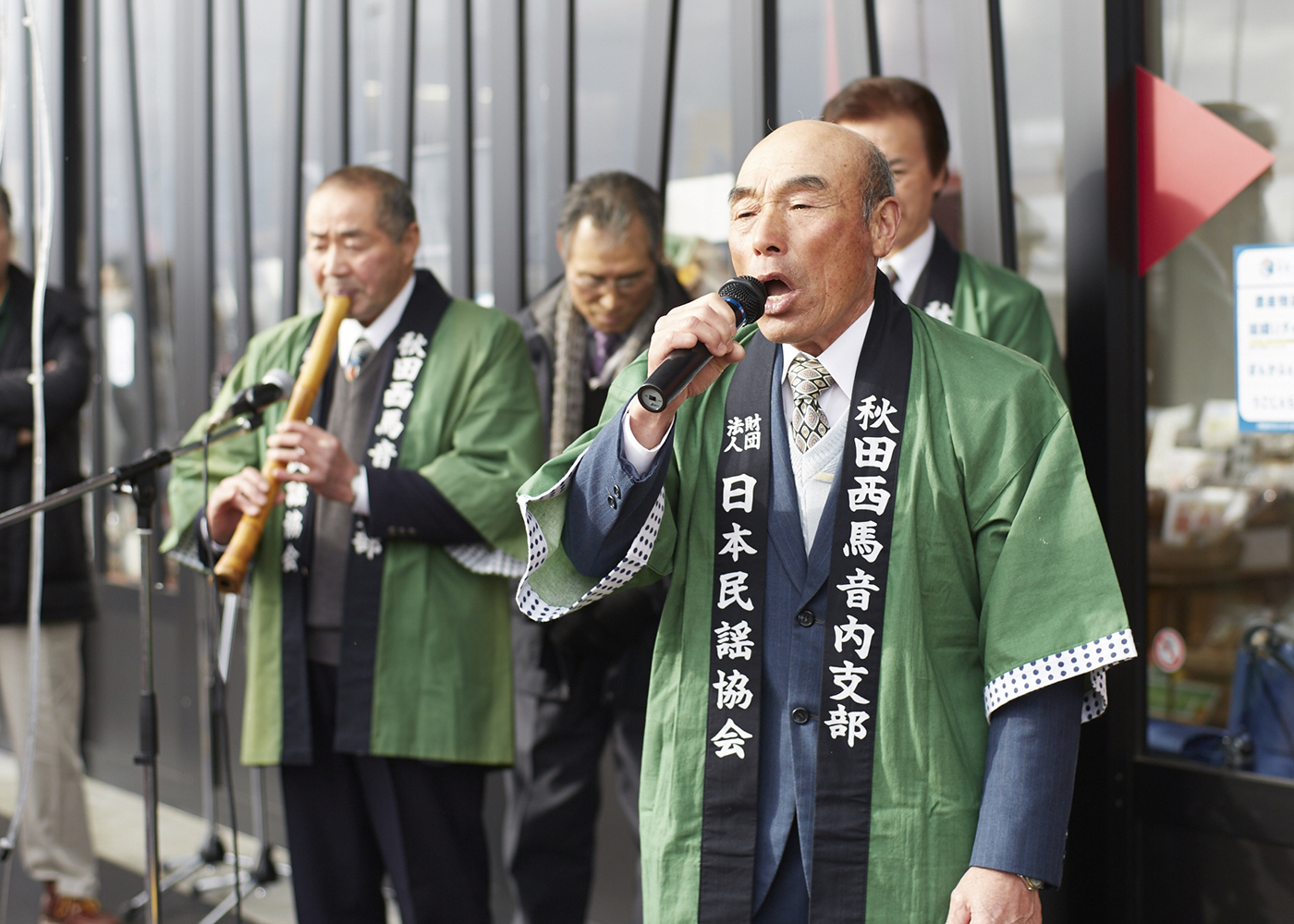
- SUGAWARA
- I also talked with my colleagues about doing something similar nearby in Yuzawa… but we didn’t get anywhere with that.
- YABUKI
- I guess it’s just something that was right for this particular area then?
- SUGAWARA
- To begin with, it’s hard for people to get a clear idea of what the Hanayome Dochu actually entails.
- YABUKI
- Yes, if you’ve not actually seen it for yourself…
- SUGAWARA
- Yeah, if you don’t actually live or work here. The old days really were something else you know! (Laughs)
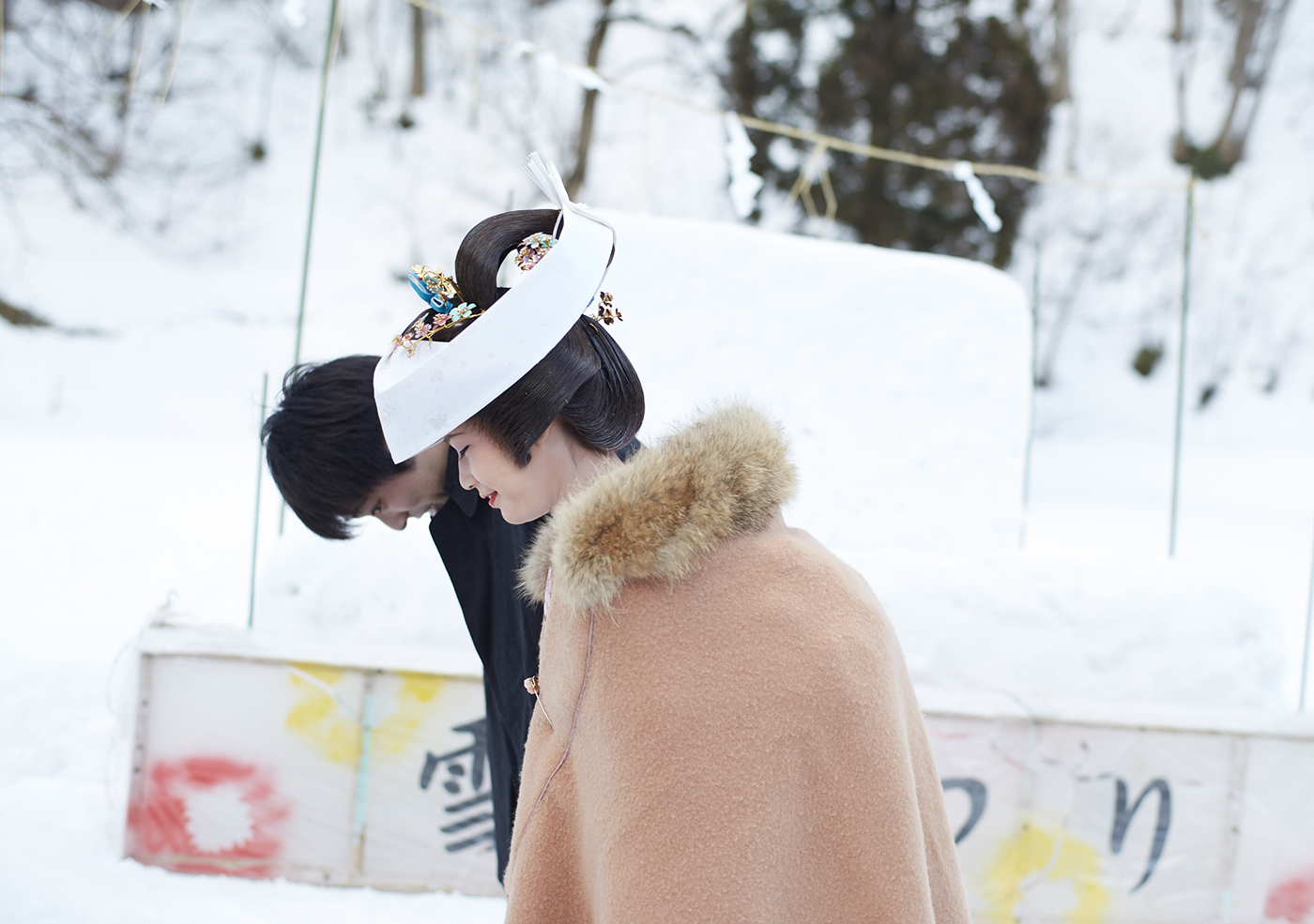
- YABUKI
- I’m sure people wonder what it would have been like to get married in those days!
- SUGAWARA
- I’d never seen weddings like this all the way through but I remember seeing the procession going past the houses in the village. In winter you get huge snowstorms on top of the pass. When I was a kid, I could hardly breathe during a snowstorm. I hid in the shelter of my mother’s coat as I walked. Our family ran a store selling food and groceries. My mother used to walk over the pass in winter to pick up supplies and I would sometimes go to meet her. The road in those days wasn’t anything like it is now. It wasn’t a road that many people traveled on. It was just the bare outline of a road really. If you stepped off it, you ended up in the ditch at the side!
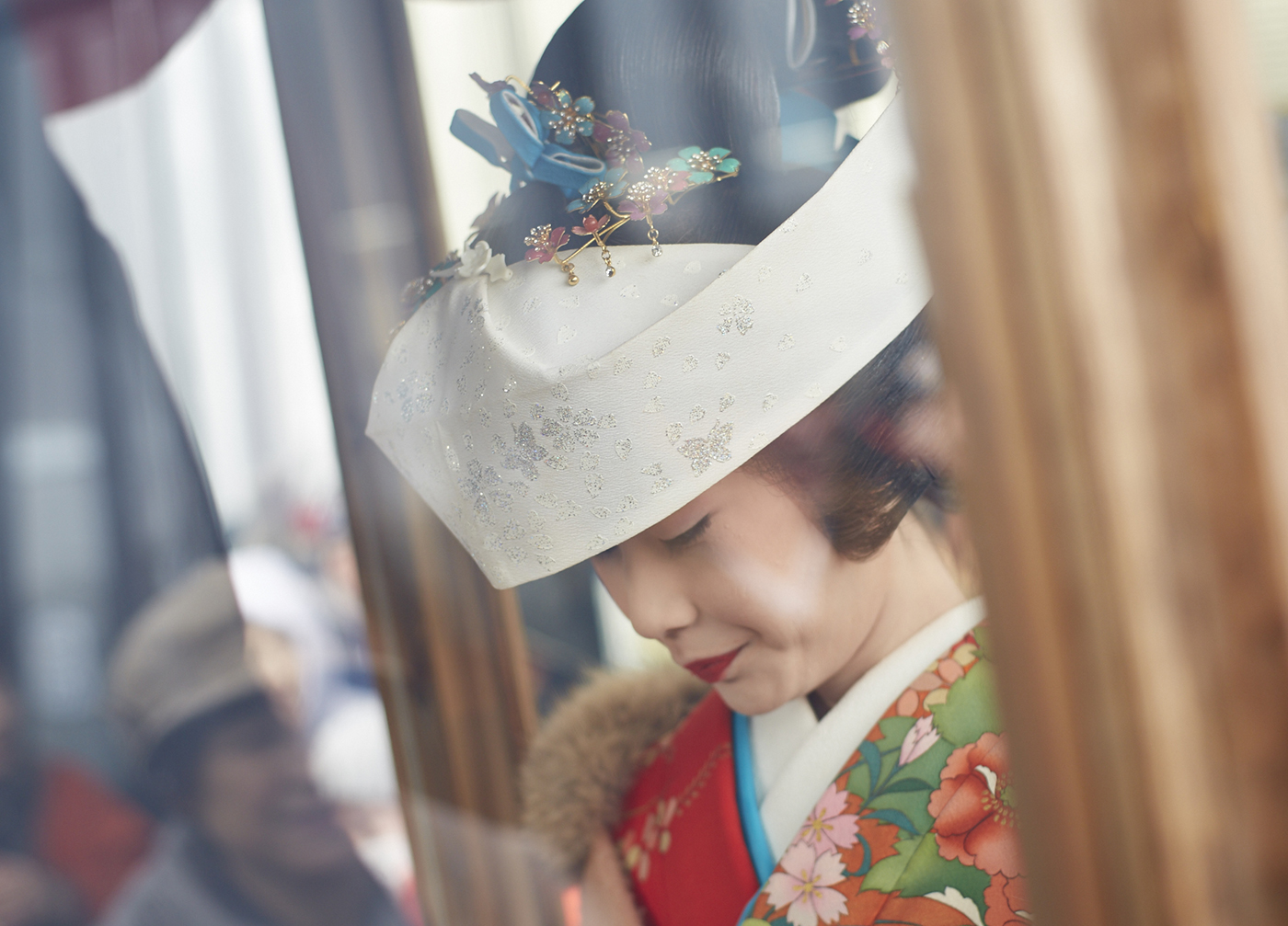
- YABUKI
- My goodness!
- SUGAWARA
- The pass was nicknamed the “Agotsuri Way” (“Jaw Dropper”). It was a short cut. It was jaw-droppingly steep. If you slipped you’d slide down and plunge into fresh snow. The Nanamagari Pass holds so many memories for me.
- YABUKI
- Wow.
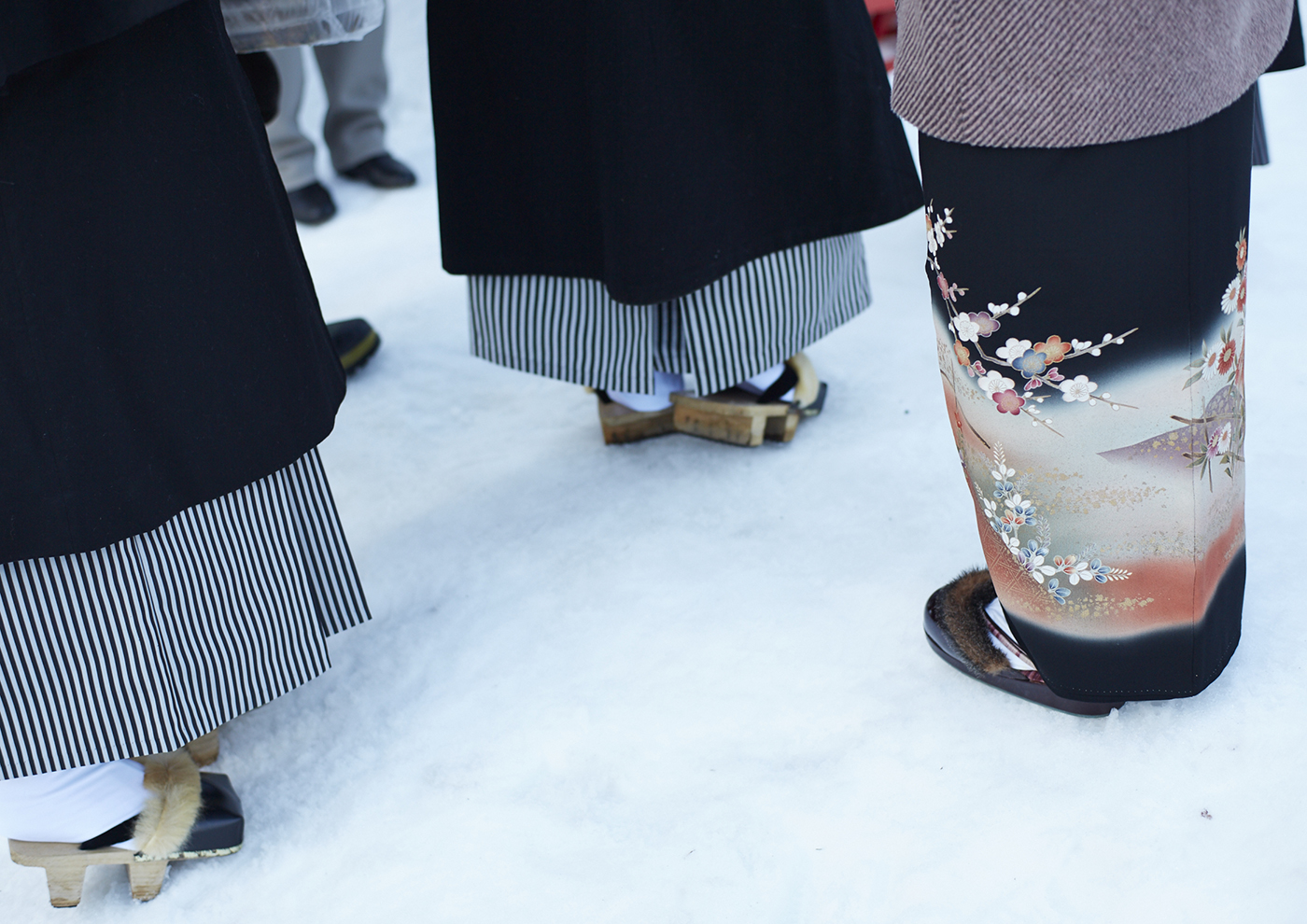
- SUGAWARA
- Someone bought some new boots for me and they had more grip when I walked. That helped. In the 1950s when I was a kid people were starting to wear polyester anoraks rather than coats. I liked the sound that the anorak material made as it rubbed together.
- YABUKI
- Ha! Ha!
- SUGAWARA
- I used to write “Gogyoka” (five-line poems) when I was young. I wrote little ditties like, “The rubbing noises my new anorak makes reassure me as I walk through the snow.” I used to walk to and back from elementary school every day and sometimes our house was cut off by a huge blizzard. With my anorak on I was fully protected against the elements. I said to myself, “The elements can’t touch me now!”
- YABUKI
- Ha! Ha! (Laughs) You were really up for it, right!
- SUGAWARA
- “Onwards!” I shouted. The anorak made its rubbing noises as I walked. That made me feel good inside.
- YABUKI
- Wow.
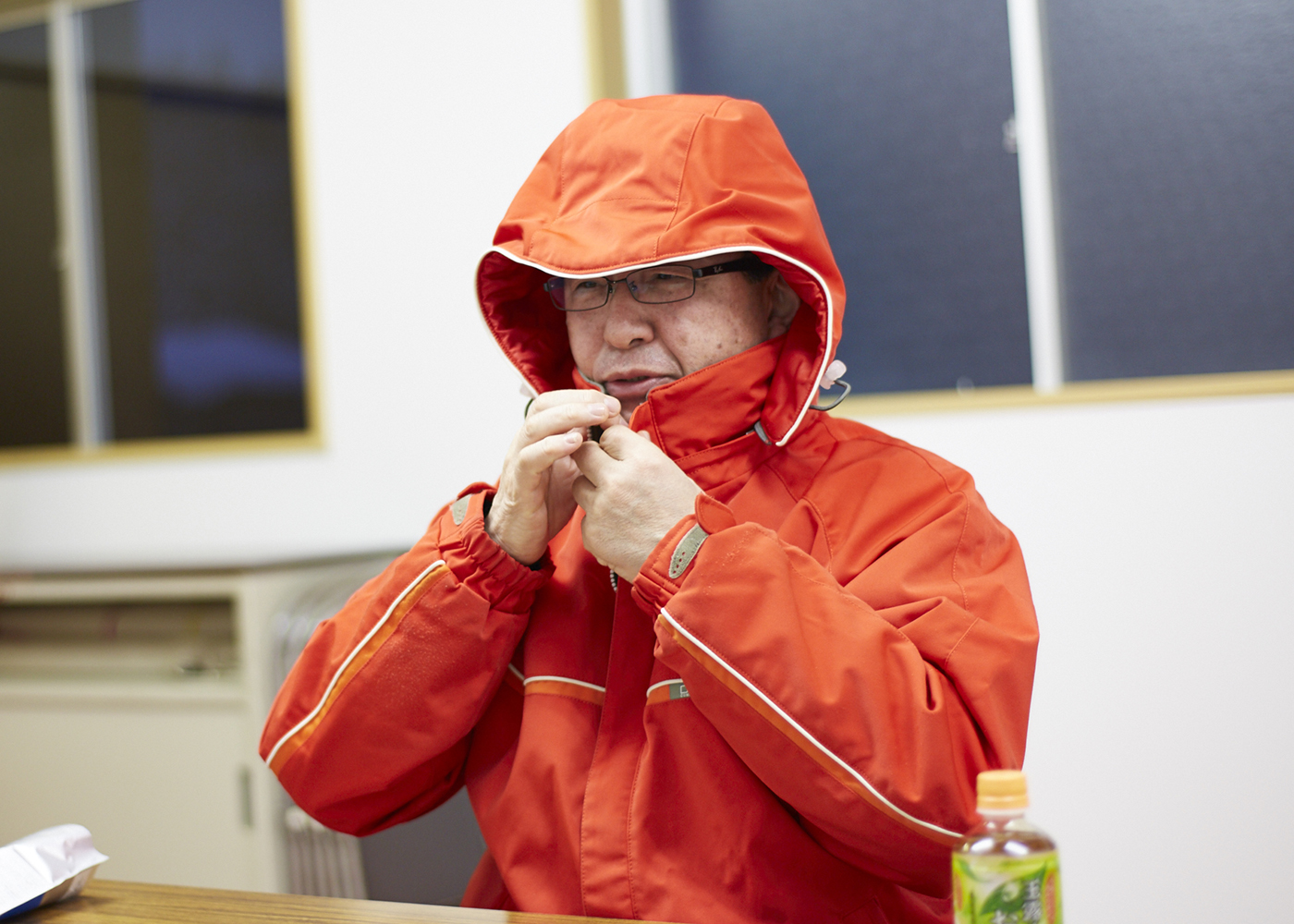
- SUGAWARA
- That’s still the case now. If you live in the snow country, it’s fun to walk along a snowy road.
- YABUKI
- I guess that’s right! (Laughs)
- SUGAWARA
- It concentrates the mind. But children these days don’t seem to appreciate that. It’s great to get the opportunity to walk along snowy roads like this. You can think about things as you walk. Did you know that there are nearly 300 suicides in Akita every year? Akita has had the highest suicide rate in the country for the past 20 years. That might be a reflection of the economy, or it may be that people get depressed by gray skies and cloudy weather. On the other hand, the snow looks beautiful when the skies clear and the sun shines. It’s a fine line. The snow can look amazing when it’s glistening in the sunlight, don’t you think!
- YABUKI
- Sure!
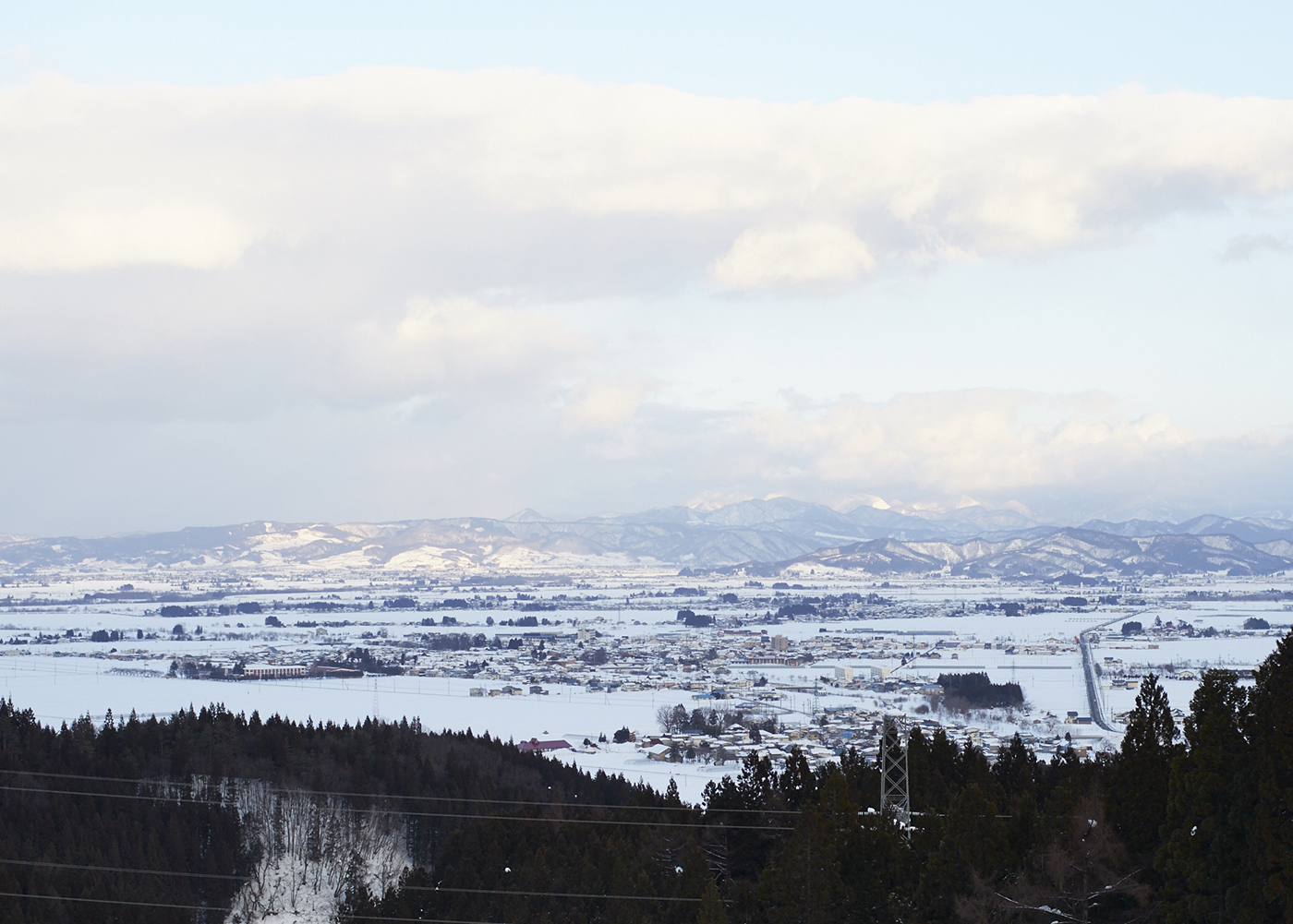
- SUGAWARA
- When you think about this, this event is not just something to do with art and culture, it’s more than that. You can see it in the wider context of society and education in general. It’s great for people who live here to be able to come up with ideas like this. But to appreciate this, it’s best not to just stay in the same place all the time. You sometimes need to venture out a bit, to move out of your “comfort zone” and put yourself into a completely different environment. That’s when the realization strikes you and you really start to appreciate it.
- YABUKI
- Yes.
- SUGAWARA
- I left home myself for a while, saw the outside world and learned from the experience. I could feel like I had lived a fuller life.
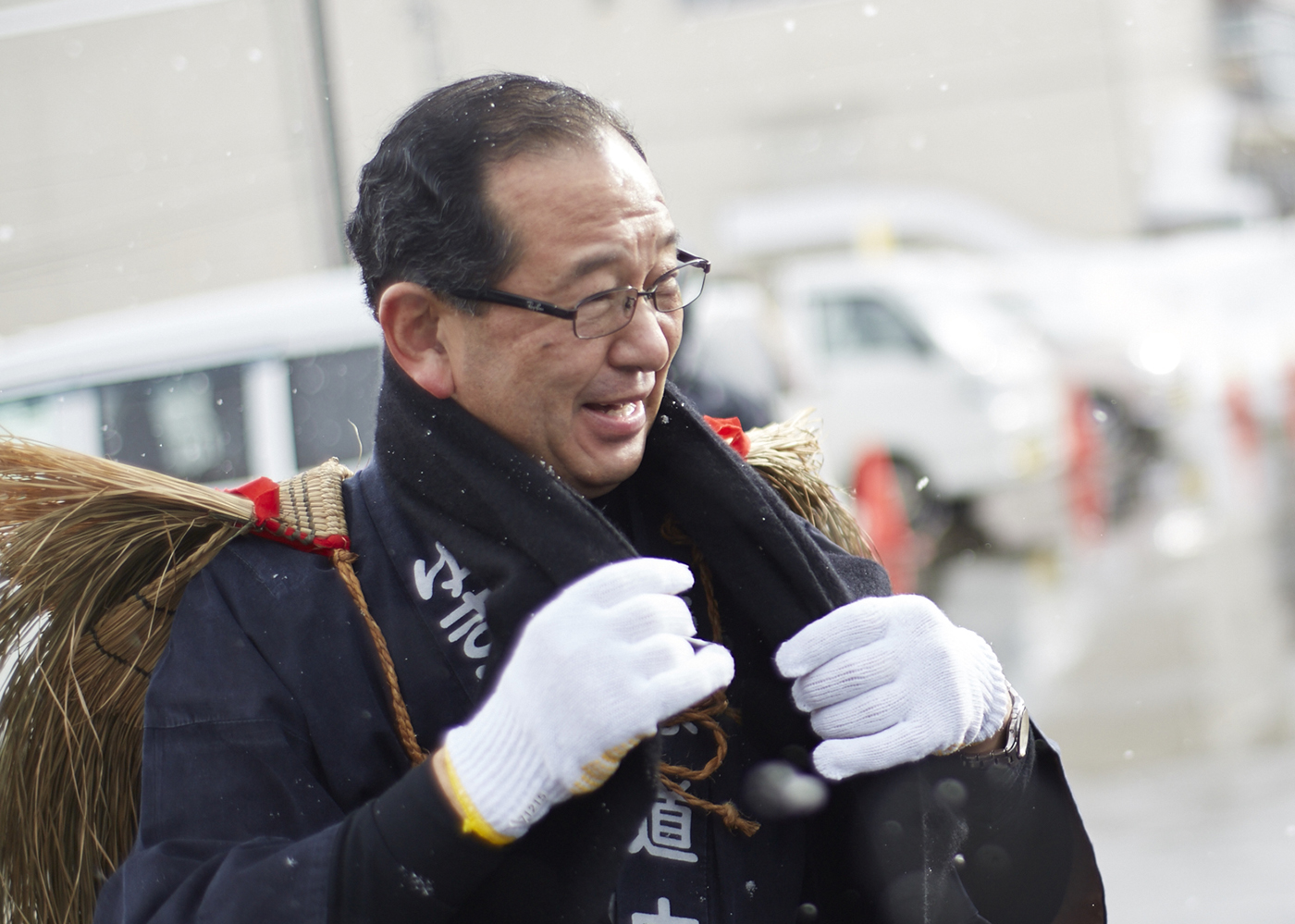
Now we’ve learned something about what the local people who live here think about the snow and the winter. Next time, we’ll find out how this event has endured for 32 years and what’s being done to ensure it carries on in future.


